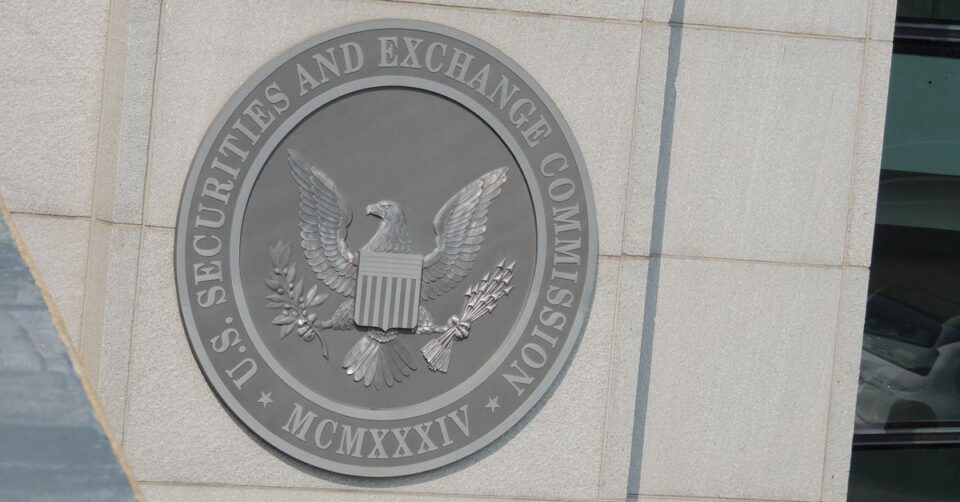The present state of crypto regulation is a “Catch-22,” a sequence of absurd and contradictory guidelines and necessities which might be not possible to observe.
Marcelo M. Prates is a central financial institution lawyer and researcher.
In Joseph Heller’s well-known novel, a Catch-22 refers to a stipulation that pilots searching for to be excused from their fight duties might file a request stating they’re insane. With one catch: submitting the request implies that the petitioner is sane and, thus, ineligible to be excused.
In 2024 America, the SEC’s “are available in and register” method is a Catch-22 for crypto.
SEC Chair Gary Gensler usually says that registering with the SEC to adjust to securities regulation is easy, “it’s only a type on our web site.” And crypto issuers and exchanges “are simply selecting to not do it” regardless of understanding the best way to do it. The SEC chair makes it sound like crypto companies have been unreasonably (if not unlawfully) cussed in not submitting the required registrations within the face of a welcoming SEC. This characterization hides a catch.
Even when we assume, as Gensler does, that each one crypto tokens are securities and ought to be registered with the SEC — which is debatable — and that the registration course of is straightforward — which isn’t — profitable registration would result in a useless finish. Registered crypto tokens, like several registered securities, might solely be traded on registered exchanges by registered broker-dealers. However that’s not possible as we speak.
The Monetary Business Regulatory Authority (FINRA), a self-regulatory group that oversees broker-dealers, has accredited only a few establishments to cope with crypto tokens. Amongst these establishments, just one is a Particular Goal Dealer-Supplier, Prometheum, which stays inactive and hasn’t but listed a token to commerce virtually one yr after the approval.
The SEC, furthermore, hasn’t allowed any at the moment registered trade or broker-dealer to listing, custody or commerce crypto tokens. The SEC’s view is that any registered establishment keen to work with crypto tokens “couldn’t deal in, impact transactions in, preserve custody of, or function an alternate buying and selling system for conventional securities.”
Additional, just about no crypto tokens have been registered with the SEC to this point. And that’s the Catch-22: issuers gained’t register their crypto tokens earlier than they will discover registered exchanges and broker-dealers that may work with them, and registered exchanges and broker-dealers gained’t begin working with crypto tokens till they see sufficient tokens registered to make the enterprise mannequin economically viable.
The fact for fintech isn’t a lot brighter. Due to the dearth of a particular federal licensing framework, fintech companies utilizing expertise to supply extra environment friendly and cost-effective monetary services and products — from debit playing cards and loans to cell funds and remittances — should companion with banks. This fintech-banking partnership is named banking-as-a-service or BaaS.
Even when the fintech startup is a licensed cash transmitter on the state stage, it should companion with a financial institution to make and obtain funds in {dollars} since solely banks can immediately entry the funds system. Because of this, licensed banks within the U.S. find yourself serving as gatekeepers to monetary innovation, as new concepts within the monetary system need to be applied by them.
The Workplace of the Comptroller of the Foreign money, the nationwide banking regulator, has been more and more cautious of BaaS preparations, making it harder and dear for banks to maintain “third-party relationships” with fintech companies. Regulators say they’re involved with how fintech companions onboard clients, monitor transactions and deal with delicate info, in addition to how banks handle these dangers to make sure compliance with the relevant guidelines and laws.
There we now have one other Catch-22: within the current regulatory setting, fintech can solely survive within the U.S. with the energetic collaboration of banks, however federal regulators don’t need banks to companion with fintech corporations. What could be finished?
However none of those state legal guidelines and regimes relieve state-compliant establishments from dealing with troubles on the federal stage. Simply ask Coinbase, which holds a BitLicense however is being sued by the SEC “for working as an unregistered securities trade, dealer, and clearing company,” or Custodia, a chartered SPDI that wasn’t allowed to carry a Fed grasp account and thus can’t immediately supply fundamental cost companies.
Congress should act to maintain monetary innovation alive. Enacting tailor-made licensing and regulatory federal frameworks for crypto and fintech is essential for holding the U.S. capital and monetary markets sound, aggressive, and inclusive. To paraphrase Heller, crypto and fintech corporations ought to embrace the concept that they’re “going to reside without end or die within the try.”
